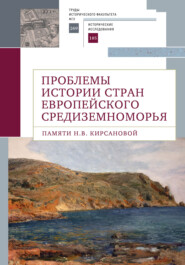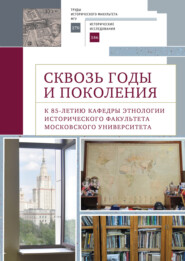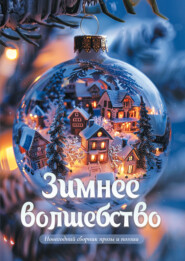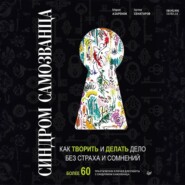По всем вопросам обращайтесь на: info@litportal.ru
(©) 2003-2025.
✖
The Lock and Key Library: The most interesting stories of all nations: American
Настройки чтения
Размер шрифта
Высота строк
Поля
But there was one person in the village unappalled by the awe with which the black veil had impressed all beside herself. When the deputies returned without an explanation, or even venturing to demand one, she, with the calm energy of her character, determined to chase away the strange cloud that appeared to be settling round Mr. Hooper, every moment more darkly than before. As his plighted wife, it should be her privilege to know what the black veil concealed. At the minister's first visit, therefore, she entered upon the subject with a direct simplicity, which made the task easier both for him and her. After he had seated himself, she fixed her eyes steadfastly upon the veil, but could discern nothing of the dreadful gloom that had so overawed the multitude: it was but a double fold of crape, hanging down from his forehead to his mouth, and slightly stirring with his breath.
"No," said she aloud, and smiling, "there is nothing terrible in this piece of crape, except that it hides a face which I am always glad to look upon. Come, good sir, let the sun shine from behind the cloud. First lay aside your black veil: then tell me why you put it on."
Mr. Hooper's smile glimmered faintly.
"There is an hour to come," said he, "when all of us shall cast aside our veils. Take it not amiss, beloved friend, if I wear this piece of crape till then."
"Your words are a mystery, too," returned the young lady. "Take away the veil from them, at least."
"Elizabeth, I will," said he, "so far as my vow may suffer me. Know, then, this veil is a type and a symbol, and I am bound to wear it ever, both in light and darkness, in solitude and before the gaze of multitudes, and as with strangers, so with my familiar friends. No mortal eye will see it withdrawn. This dismal shade must separate me from the world: even you, Elizabeth, can never come behind it!"
"What grievous affliction hath befallen you," she earnestly inquired, "that you should thus darken your eyes forever?"
"If it be a sign of mourning," replied Mr. Hooper, "I, perhaps, like most other mortals, have sorrows dark enough to be typified by a black veil."
"But what if the world will not believe that it is the type of an innocent sorrow?" urged Elizabeth. "Beloved and respected as you are, there may be whispers that you hide your face under the consciousness of secret sin. For the sake of your holy office, do away this scandal!"
The color rose into her cheeks as she intimated the nature of the rumors that were already abroad in the village. But Mr. Hooper's mildness did not forsake him. He even smiled again – that same sad smile, which always appeared like a faint glimmering of light, proceeding from the obscurity beneath the veil.
"If I hide my face for sorrow, there is cause enough," he merely replied; "and if I cover it for secret sin, what mortal might not do the same?"
And with this gentle, but unconquerable obstinacy did he resist all her entreaties. At length Elizabeth sat silent. For a few moments she appeared lost in thought, considering, probably, what new methods might be tried to withdraw her lover from so dark a fantasy, which, if it had no other meaning, was perhaps a symptom of mental disease. Though of a firmer character than his own, the tears rolled down her cheeks. But, in an instant, as it were, a new feeling took the place of sorrow: her eyes were fixed insensibly on the black veil, when, like a sudden twilight in the air, its terrors fell around her. She arose, and stood trembling before him.
"And do you feel it then, at last?" said he mournfully.
She made no reply, but covered her eyes with her hand, and turned to leave the room. He rushed forward and caught her arm.
"Have patience with me, Elizabeth!" cried he, passionately. "Do not desert me, though this veil must be between us here on earth. Be mine, and hereafter there shall be no veil over my face, no darkness between our souls! It is but a mortal veil – it is not for eternity! O! you know not how lonely I am, and how frightened, to be alone behind my black veil. Do not leave me in this miserable obscurity forever!"
"Lift the veil but once, and look me in the face," said she.
"Never! It cannot be!" replied Mr. Hooper.
"Then farewell!" said Elizabeth.
She withdrew her arm from his grasp, and slowly departed, pausing at the door, to give one long shuddering gaze, that seemed almost to penetrate the mystery of the black veil. But, even amid his grief, Mr. Hooper smiled to think that only a material emblem had separated him from happiness, though the horrors, which it shadowed forth, must be drawn darkly between the fondest of lovers.
From that time no attempts were made to remove Mr. Hooper's black veil, or, by a direct appeal, to discover the secret which it was supposed to hide. By persons who claimed a superiority to popular prejudice, it was reckoned merely an eccentric whim, such as often mingles with the sober actions of men otherwise rational, and tinges them all with its own semblance of insanity. But with the multitude, good Mr. Hooper was irreparably a bugbear. He could not walk the street with any peace of mind, so conscious was he that the gentle and timid would turn aside to avoid him, and that others would make it a point of hardihood to throw themselves in his way. The impertinence of the latter class compelled him to give up his customary walk at sunset to the burial ground; for when he leaned pensively over the gate, there would always be faces behind the gravestones, peeping at his black veil. A fable went the rounds that the stare of the dead people drove him thence. It grieved him, to the very depth of his kind heart, to observe how the children fled from his approach, breaking up their merriest sports, while his melancholy figure was yet afar off. Their instinctive dread caused him to feel more strongly than aught else, that a preternatural horror was interwoven with the threads of the black crape. In truth, his own antipathy to the veil was known to be so great, that he never willingly passed before a mirror, nor stooped to drink at a still fountain, lest, in its peaceful bosom, he should be affrighted by himself. This was what gave plausibility to the whispers, that Mr. Hooper's conscience tortured him for some great crime too horrible to be entirely concealed, or otherwise than so obscurely intimated. Thus, from beneath the black veil, there rolled a cloud into the sunshine, an ambiguity of sin or sorrow, which enveloped the poor minister, so that love or sympathy could never reach him. It was said that ghost and fiend consorted with him there. With self-shudderings and outward terrors, he walked continually in its shadow, groping darkly within his own soul, or gazing through a medium that saddened the whole world. Even the lawless wind, it was believed, respected his dreadful secret, and never blew aside the veil. But still good Mr. Hooper sadly smiled at the pale visages of the worldly throng as he passed by.
Among all its bad influences, the black veil had the one desirable effect, of making its wearer a very efficient clergyman. By the aid of his mysterious emblem – for there was no other apparent cause – he became a man of awful power over souls that were in agony for sin. His converts always regarded him with a dread peculiar to themselves, affirming, though but figuratively, that, before he brought them to celestial light, they had been with him behind the black veil. Its gloom, indeed, enabled him to sympathize with all dark affections. Dying sinners cried aloud for Mr. Hooper, and would not yield their breath till he appeared; though ever, as he stooped to whisper consolation, they shuddered at the veiled face so near their own. Such were the terrors of the black veil, even when Death had bared his visage! Strangers came long distances to attend service at his church, with the mere idle purpose of gazing at his figure, because it was forbidden them to behold his face. But many were made to quake ere they departed! Once, during Governor Belcher's administration, Mr. Hooper was appointed to preach the election sermon. Covered with his black veil, he stood before the chief magistrate, the council, and the representatives, and wrought so deep an impression, that the legislative measures of that year were characterized by all the gloom and piety of our earliest ancestral sway.
In this manner Mr. Hooper spent a long life, irreproachable in outward act, yet shrouded in dismal suspicions; kind and loving, though unloved, and dimly feared; a man apart from men, shunned in their health and joy, but ever summoned to their aid in mortal anguish. As years wore on, shedding their snows above his sable veil, he acquired a name throughout the New England churches, and they called him Father Hooper. Nearly all his parishioners, who were of mature age when he was settled, had been borne away by many a funeral: he had one congregation in the church, and a more crowded one in the churchyard; and having wrought so late into the evening, and done his work so well, it was now good Father Hooper's turn to rest.
Several persons were visible by the shaded candlelight, in the death chamber of the old clergyman. Natural connections he had none. But there was the decorously grave, though unmoved physician, seeking only to mitigate the last pangs of the patient whom he could not save. There were the deacons, and other eminently pious members of his church. There, also, was the Reverend Mr. Clark, of Westbury, a young and zealous divine, who had ridden in haste to pray by the bedside of the expiring minister. There was the nurse, no hired handmaiden of death, but one whose calm affection had endured thus long in secrecy, in solitude, amid the chill of age, and would not perish, even at the dying hour. Who, but Elizabeth! And there lay the hoary head of good Father Hooper upon the death pillow, with the black veil still swathed about his brow, and reaching down over his face, so that each more difficult gasp of his faint breath caused it to stir. All through life that piece of crape had hung between him and the world: it had separated him from cheerful brotherhood and woman's love, and kept him in that saddest of all prisons, his own heart; and still it lay upon his face, as if to deepen the gloom of his darksome chamber, and shade him from the sunshine of eternity.
For some time previous, his mind had been confused, wavering doubtfully between the past and the present, and hovering forward, as it were, at intervals, into the indistinctness of the world to come. There had been feverish turns, which tossed him from side to side, and wore away what little strength he had. But in his most convulsive struggles, and in the wildest vagaries of his intellect, when no other thought retained its sober influence, he still showed an awful solicitude lest the black veil should slip aside. Even if his bewildered soul could have forgotten, there was a faithful woman at this pillow, who, with averted eyes, would have covered that aged face, which she had last beheld in the comeliness of manhood. At length the death-stricken old man lay quietly in the torpor of mental and bodily exhaustion, with an imperceptible pulse, and breath that grew fainter and fainter, except when a long, deep, and irregular inspiration seemed to prelude the flight of his spirit.
The minister of Westbury approached the bedside.
"Venerable Father Hooper," said he, "the moment of your release is at hand. Are you ready for the lifting of the veil that shuts in time from eternity?"
Father Hooper at first replied merely by a feeble motion of his head; then, apprehensive, perhaps, that his meaning might be doubted, he exerted himself to speak.
"Yea," said he, in faint accents, "my soul hath a patient weariness until that veil be lifted."
"And is it fitting," resumed the Reverend Mr. Clark, "that a man so given to prayer, of such a blameless example, holy in deed and thought, so far as mortal judgment may pronounce; is it fitting that a father in the church should leave a shadow on his memory, that may seem to blacken a life so pure? I pray you, my venerable brother, let not this thing be! Suffer us to be gladdened by your triumphant aspect as you go to your reward. Before the veil of eternity be lifted, let me cast aside this black veil from your face!"
And thus speaking, the Reverend Mr. Clark bent forward to reveal the mystery of so many years. But, exerting a sudden energy, that made all the beholders stand aghast, Father Hooper snatched both his hands from beneath the bedclothes, and pressed them strongly on the black veil, resolute to struggle, if the minister of Westbury would contend with a dying man.
"Never!" cried the veiled clergyman. "On earth, never!"
"Dark old man!" exclaimed the affrighted minister, "with what horrible crime upon your soul are you now passing to the judgment?"
Father Hooper's breath heaved; it rattled in his throat; but, with a mighty effort, grasping forward with his hands, he caught hold of life, and held it back till he should speak. He even raised himself in bed; and there he sat, shivering with the arms of death around him, while the black veil hung down, awful, at that last moment, in the gathered terrors of a lifetime. And yet the faint, sad smile, so often there, now seemed to glimmer from its obscurity, and linger on Father Hooper's lips.
"Why do you tremble at me alone?" cried he, turning his veiled face round the circle of pale spectators. "Tremble also at each other! Have men avoided me, and women shown no pity, and children screamed and fled, only for my black veil? What, but the mystery which it obscurely typifies, has made this piece of crape so awful? When the friend shows his inmost heart to his friend; the lover to his best beloved; when man does not vainly shrink from the eye of his Creator, loathsomely treasuring up the secret of his sin; then deem me a monster, for the symbol beneath which I have lived, and die! I look around me, and, lo! on every visage a Black Veil!"
While his auditors shrank from one another, in mutual affright, Father Hooper fell back upon his pillow, a veiled corpse, with a faint smile lingering on the lips. Still veiled, they laid him in his coffin, and a veiled corpse they bore him to the grave. The grass of many years has sprung up and withered on that grave, the burial stone is moss-grown, and good Mr. Hooper's face is dust; but awful is still the thought that it mouldered beneath the Black Veil!
Anonymous
Horror: A True Tale
I was but nineteen years of age when the incident occurred which has thrown a shadow over my life; and, ah me! how many and many a weary year has dragged by since then! Young, happy, and beloved I was in those long-departed days. They said that I was beautiful. The mirror now reflects a haggard old woman, with ashen lips and face of deadly pallor. But do not fancy that you are listening to a mere puling lament. It is not the flight of years that has brought me to be this wreck of my former self: had it been so I could have borne the loss cheerfully, patiently, as the common lot of all; but it was no natural progress of decay which has robbed me of bloom, of youth, of the hopes and joys that belong to youth, snapped the link that bound my heart to another's, and doomed me to a lone old age. I try to be patient, but my cross has been heavy, and my heart is empty and weary, and I long for the death that comes so slowly to those who pray to die.
I will try and relate, exactly as it happened, the event which blighted my life. Though it occurred many years ago, there is no fear that I should have forgotten any of the minutest circumstances: they were stamped on my brain too clearly and burningly, like the brand of a red-hot iron. I see them written in the wrinkles of my brow, in the dead whiteness of my hair, which was a glossy brown once, and has known no gradual change from dark to gray, from gray to white, as with those happy ones who were the companions of my girlhood, and whose honored age is soothed by the love of children and grandchildren. But I must not envy them. I only meant to say that the difficulty of my task has no connection with want of memory – I remember but too well. But as I take my pen my hand trembles, my head swims, the old rushing faintness and Horror comes over me again, and the well-remembered fear is upon me. Yet I will go on.
This, briefly, is my story: I was a great heiress, I believe, though I cared little for the fact; but so it was. My father had great possessions, and no son to inherit after him. His three daughters, of whom I was the youngest, were to share the broad acres among them. I have said, and truly, that I cared little for the circumstance; and, indeed, I was so rich then in health and youth and love that I felt myself quite indifferent to all else. The possession of all the treasures of earth could never have made up for what I then had – and lost, as I am about to relate. Of course, we girls knew that we were heiresses, but I do not think Lucy and Minnie were any the prouder or the happier on that account. I know I was not. Reginald did not court me for my money. Of THAT I felt assured. He proved it, Heaven be praised! when he shrank from my side after the change. Yes, in all my lonely age, I can still be thankful that he did not keep his word, as some would have done – did not clasp at the altar a hand he had learned to loathe and shudder at, because it was full of gold – much gold! At least he spared me that. And I know that I was loved, and the knowledge has kept me from going mad through many a weary day and restless night, when my hot eyeballs had not a tear to shed, and even to weep was a luxury denied me.
Our house was an old Tudor mansion. My father was very particular in keeping the smallest peculiarities of his home unaltered. Thus the many peaks and gables, the numerous turrets, and the mullioned windows with their quaint lozenge panes set in lead, remained very nearly as they had been three centuries back. Over and above the quaint melancholy of our dwelling, with the deep woods of its park and the sullen waters of the mere, our neighborhood was thinly peopled and primitive, and the people round us were ignorant, and tenacious of ancient ideas and traditions. Thus it was a superstitious atmosphere that we children were reared in, and we heard, from our infancy, countless tales of horror, some mere fables doubtless, others legends of dark deeds of the olden time, exaggerated by credulity and the love of the marvelous. Our mother had died when we were young, and our other parent being, though a kind father, much absorbed in affairs of various kinds, as an active magistrate and landlord, there was no one to check the unwholesome stream of tradition with which our plastic minds were inundated in the company of nurses and servants. As years went on, however, the old ghostly tales partially lost their effects, and our undisciplined minds were turned more towards balls, dress, and partners, and other matters airy and trivial, more welcome to our riper age. It was at a county assembly that Reginald and I first met – met and loved. Yes, I am sure that he loved me with all his heart. It was not as deep a heart as some, I have thought in my grief and anger; but I never doubted its truth and honesty. Reginald's father and mine approved of our growing attachment; and as for myself, I know I was so happy then, that I look back upon those fleeting moments as on some delicious dream. I now come to the change. I have lingered on my childish reminiscences, my bright and happy youth, and now I must tell the rest – the blight and the sorrow.
It was Christmas, always a joyful and a hospitable time in the country, especially in such an old hall as our home, where quaint customs and frolics were much clung to, as part and parcel of the very dwelling itself. The hall was full of guests – so full, indeed, that there was great difficulty in providing sleeping accommodation for all. Several narrow and dark chambers in the turrets – mere pigeon-holes, as we irreverently called what had been thought good enough for the stately gentlemen of Elizabeth's reign – were now allotted to bachelor visitors, after having been empty for a century. All the spare rooms in the body and wings of the hall were occupied, of course; and the servants who had been brought down were lodged at the farm and at the keeper's, so great was the demand for space. At last the unexpected arrival of an elderly relative, who had been asked months before, but scarcely expected, caused great commotion. My aunts went about wringing their hands distractedly. Lady Speldhurst was a personage of some consequence; she was a distant cousin, and had been for years on cool terms with us all, on account of some fancied affront or slight when she had paid her LAST visit, about the time of my christening. She was seventy years old; she was infirm, rich, and testy; moreover, she was my godmother, though I had forgotten the fact; but it seems that though I had formed no expectations of a legacy in my favor, my aunts had done so for me. Aunt Margaret was especially eloquent on the subject. "There isn't a room left," she said; "was ever anything so unfortunate! We cannot put Lady Speldhurst into the turrets, and yet where IS she to sleep? And Rosa's godmother, too! Poor, dear child, how dreadful! After all these years of estrangement, and with a hundred thousand in the funds, and no comfortable, warm room at her own unlimited disposal – and Christmas, of all times in the year!" What WAS to be done? My aunts could not resign their own chambers to Lady Speldhurst, because they had already given them up to some of the married guests. My father was the most hospitable of men, but he was rheumatic, gouty, and methodical. His sisters-in-law dared not propose to shift his quarters; and, indeed, he would have far sooner dined on prison fare than have been translated to a strange bed. The matter ended in my giving up my room. I had a strange reluctance to making the offer, which surprised myself. Was it a boding of evil to come? I cannot say. We are strangely and wonderfully made. It MAY have been. At any rate, I do not think it was any selfish unwillingness to make an old and infirm lady comfortable by a trifling sacrifice. I was perfectly healthy and strong. The weather was not cold for the time of the year. It was a dark, moist Yule – not a snowy one, though snow brooded overhead in the darkling clouds. I DID make the offer, which became me, I said with a laugh, as the youngest. My sisters laughed too, and made a jest of my evident wish to propitiate my godmother. "She is a fairy godmother, Rosa," said Minnie; "and you know she was affronted at your christening, and went away muttering vengeance. Here she is coming back to see you; I hope she brings golden gifts with her."
I thought little of Lady Speldhurst and her possible golden gifts. I cared nothing for the wonderful fortune in the funds that my aunts whispered and nodded about so mysteriously. But since then I have wondered whether, had I then showed myself peevish or obstinate – had I refused to give up my room for the expected kinswoman – it would not have altered the whole of my life? But then Lucy or Minnie would have offered in my stead, and been sacrificed – what do I say? – better that the blow should have fallen as it did than on those dear ones.
The chamber to which I removed was a dim little triangular room in the western wing, and was only to be reached by traversing the picture-gallery, or by mounting a little flight of stone stairs which led directly upward from the low-browed arch of a door that opened into the garden. There was one more room on the same landing-place, and this was a mere receptacle for broken furniture, shattered toys, and all the lumber that WILL accumulate in a country-house. The room I was to inhabit for a few nights was a tapestry-hung apartment, with faded green curtains of some costly stuff, contrasting oddly with a new carpet and the bright, fresh hangings of the bed, which had been hurriedly erected. The furniture was half old, half new; and on the dressing-table stood a very quaint oval mirror, in a frame of black wood – unpolished ebony, I think. I can remember the very pattern of the carpet, the number of chairs, the situation of the bed, the figures on the tapestry. Nay, I can recollect not only the color of the dress I wore on that fated evening, but the arrangement of every scrap of lace and ribbon, of every flower, every jewel, with a memory but too perfect.
Scarcely had my maid finished spreading out my various articles of attire for the evening (when there was to be a great dinner-party) when the rumble of a carriage announced that Lady Speldhurst had arrived. The short winter's day drew to a close, and a large number of guests were gathered together in the ample drawing-room, around the blaze of the wood-fire, after dinner. My father, I recollect, was not with us at first. There were some squires of the old, hard-riding, hard-drinking stamp still lingering over their port in the dining-room, and the host, of course, could not leave them. But the ladies and all the younger gentlemen – both those who slept under our roof, and those who would have a dozen miles of fog and mire to encounter on their road home – were all together. Need I say that Reginald was there? He sat near me – my accepted lover, my plighted future husband. We were to be married in the spring. My sisters were not far off; they, too, had found eyes that sparkled and softened in meeting theirs, had found hearts that beat responsive to their own. And, in their cases, no rude frost nipped the blossom ere it became the fruit; there was no canker in their flowerets of young hope, no cloud in their sky. Innocent and loving, they were beloved by men worthy of their esteem.
The room – a large and lofty one, with an arched roof – had somewhat of a somber character, from being wainscoted and ceiled with polished black oak of a great age. There were mirrors, and there were pictures on the walls, and handsome furniture, and marble chimney-pieces, and a gay Tournay carpet; but these merely appeared as bright spots on the dark background of the Elizabethan woodwork. Many lights were burning, but the blackness of the walls and roof seemed absolutely to swallow up their rays, like the mouth of a cavern. A hundred candles could not have given that apartment the cheerful lightness of a modern drawing room. But the gloomy richness of the panels matched well with the ruddy gleam from the enormous wood-fire, in which, crackling and glowing, now lay the mighty Yule log. Quite a blood-red luster poured forth from the fire, and quivered on the walls and the groined roof. We had gathered round the vast antique hearth in a wide circle. The quivering light of the fire and candles fell upon us all, but not equally, for some were in shadow. I remember still how tall and manly and handsome Reginald looked that night, taller by the head than any there, and full of high spirits and gayety. I, too, was in the highest spirits; never had my bosom felt lighter, and I believe it was my mirth that gradually gained the rest, for I recollect what a blithe, joyous company we seemed. All save one. Lady Speldhurst, dressed in gray silk and wearing a quaint head- dress, sat in her armchair, facing the fire, very silent, with her hands and her sharp chin propped on a sort of ivory-handled crutch that she walked with (for she was lame), peering at me with half- shut eyes. She was a little, spare old woman, with very keen, delicate features of the French type. Her gray silk dress, her spotless lace, old-fashioned jewels, and prim neatness of array, were well suited to the intelligence of her face, with its thin lips, and eyes of a piercing black, undimmed by age. Those eyes made me uncomfortable, in spite of my gayety, as they followed my every movement with curious scrutiny. Still I was very merry and gay; my sisters even wondered at my ever-ready mirth, which was almost wild in its excess. I have heard since then of the Scottish belief that those doomed to some great calamity become fey, and are never so disposed for merriment and laughter as just before the blow falls. If ever mortal was fey, then I was so on that evening. Still, though I strove to shake it off, the pertinacious observation of old Lady Speldhurst's eyes DID make an impression on me of a vaguely disagreeable nature. Others, too, noticed her scrutiny of me, but set it down as a mere eccentricity of a person always reputed whimsical, to say the least of it.
However, this disagreeable sensation lasted but a few moments. After a short pause my aunt took her part in the conversation, and we found ourselves listening to a weird legend, which the old lady told exceedingly well. One tale led to another. Everyone was called on in turn to contribute to the public entertainment, and story after story, always relating to demonology and witchcraft, succeeded. It was Christmas, the season for such tales; and the old room, with its dusky walls and pictures, and vaulted roof, drinking up the light so greedily, seemed just fitted to give effect to such legendary lore. The huge logs crackled and burned with glowing warmth; the blood-red glare of the Yule log flashed on the faces of the listeners and narrator, on the portraits, and the holly wreathed about their frames, and the upright old dame, in her antiquated dress and trinkets, like one of the originals of the pictures, stepped from the canvas to join our circle. It threw a shimmering luster of an ominously ruddy hue upon the oaken panels. No wonder that the ghost and goblin stories had a new zest. No wonder that the blood of the more timid grew chill and curdled, that their flesh crept, that their hearts beat irregularly, and the girls peeped fearfully over their shoulders, and huddled close together like frightened sheep, and half fancied they beheld some impish and malignant face gibbering at them from the darkling corners of the old room. By degrees my high spirits died out, and I felt the childish tremors, long latent, long forgotten, coming over me. I followed each story with painful interest; I did not ask myself if I believed the dismal tales. I listened, and fear grew upon me – the blind, irrational fear of our nursery days. I am sure most of the other ladies present, young or middle-aged, were affected by the circumstances under which these traditions were heard, no less than by the wild and fantastic character of them. But with them the impression would die out next morning, when the bright sun should shine on the frosted boughs, and the rime on the grass, and the scarlet berries and green spikelets of the holly; and with me – but, ah! what was to happen ere another day dawn? Before we had made an end of this talk my father and the other squires came in, and we ceased our ghost stories, ashamed to speak of such matters before these new-comers – hard-headed, unimaginative men, who had no sympathy with idle legends. There was now a stir and bustle.
Servants were handing round tea and coffee, and other refreshments. Then there was a little music and singing. I sang a duet with Reginald, who had a fine voice and good musical skill. I remember that my singing was much praised, and indeed I was surprised at the power and pathos of my own voice, doubtless due to my excited nerves and mind. Then I heard someone say to another that I was by far the cleverest of the Squire's daughters, as well as the prettiest. It did not make me vain. I had no rivalry with Lucy and Minnie. But Reginald whispered some soft, fond words in my ear a little before he mounted his horse to set off homeward, which DID make me happy and proud. And to think that the next time we met – but I forgave him long ago. Poor Reginald! And now shawls and cloaks were in request, and carriages rolled up to the porch, and the guests gradually departed. At last no one was left but those visitors staying in the house. Then my father, who had been called out to speak with the bailiff of the estate, came back with a look of annoyance on his face.
"A strange story I have just been told," said he; "here has been my bailiff to inform me of the loss of four of the choicest ewes out of that little flock of Southdowns I set such store by, and which arrived in the north but two months since. And the poor creatures have been destroyed in so strange a manner, for their carcasses are horribly mangled."
Most of us uttered some expression of pity or surprise, and some suggested that a vicious dog was probably the culprit.

















